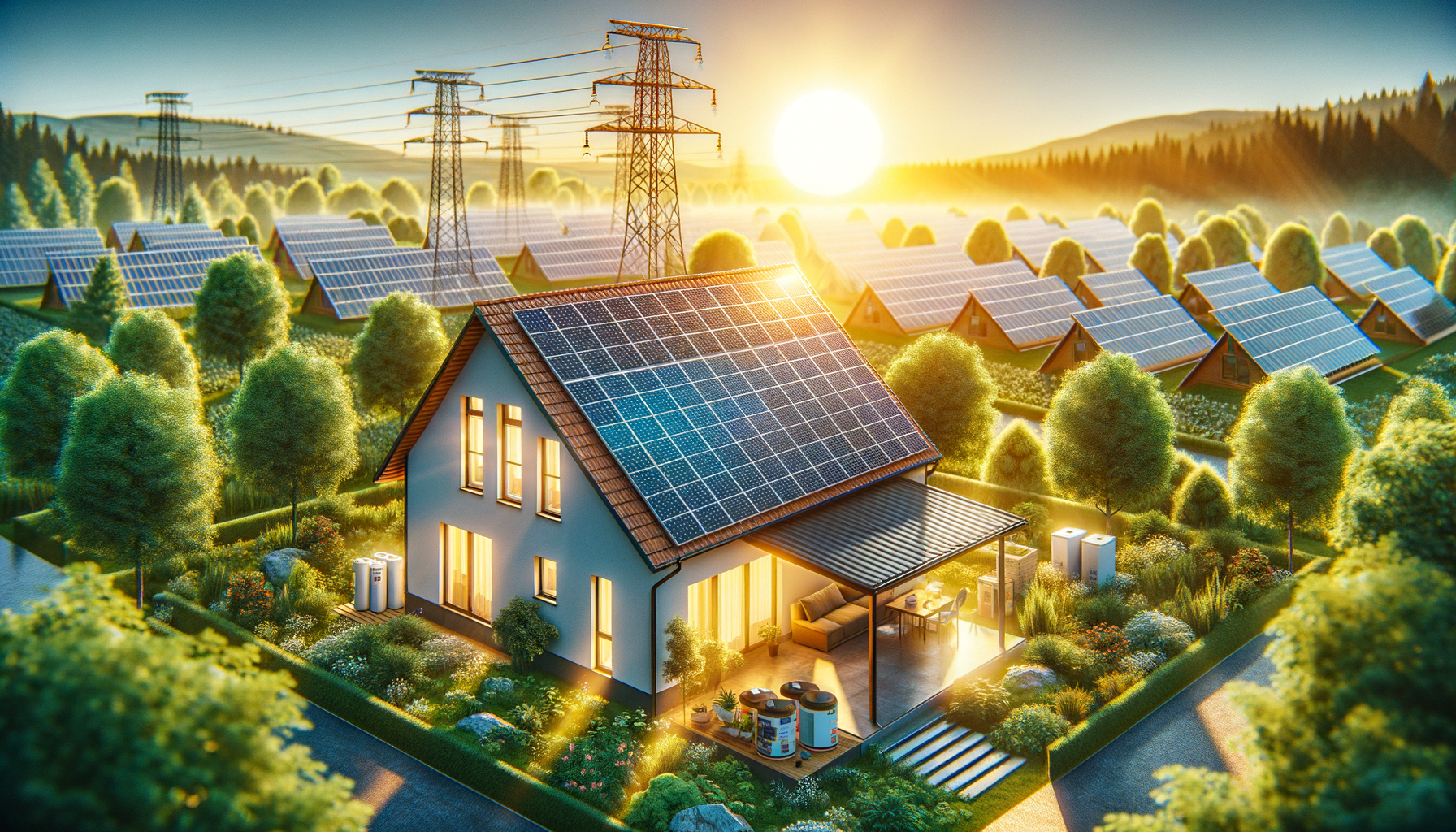Understanding Energy Efficiency in Solar Panels
Energy efficiency in solar panels refers to the ability of the panels to convert sunlight into usable electricity. This efficiency is crucial as it determines the amount of energy you can generate from a given amount of sunlight. Modern solar panels typically have an efficiency rate of 15% to 20%, with some advanced models reaching up to 22%.
Several factors influence the efficiency of solar panels, including the type of photovoltaic cells used, the quality of the panel construction, and the angle and orientation of the installation. For instance, monocrystalline panels are known for their high efficiency and longevity, making them a popular choice for residential installations.
Investing in high-efficiency panels can lead to significant long-term savings. Although they might have a higher upfront cost, the increased energy output can offset the initial investment over time. Additionally, efficient panels require less space to generate the same amount of energy as less efficient ones, making them ideal for properties with limited roof space.
When considering solar panels, it’s also essential to factor in the local climate and weather conditions, as these can impact the overall efficiency. For example, areas with high temperatures may experience a slight decrease in efficiency due to heat affecting the panels’ performance. However, advancements in technology continue to improve efficiency, making solar energy a viable option for various climates.
Installation Basics: What You Need to Know
Installing solar panels is a complex process that requires careful planning and consideration. The first step is to conduct a thorough assessment of your property to determine the most suitable location for the panels. This involves evaluating the roof’s orientation, angle, and shading from nearby trees or buildings.
Once the site is chosen, the next step is to select the appropriate solar panel system. This involves deciding between grid-tied or off-grid systems, each with its advantages and limitations. Grid-tied systems are connected to the local power grid, allowing you to sell excess energy back to the utility company, while off-grid systems provide complete energy independence but require battery storage solutions.
Professional installation is crucial to ensure safety and efficiency. Certified installers will handle the mounting of the panels, wiring, and connection to your home’s electrical system. They will also ensure compliance with local regulations and obtain any necessary permits.
Before installation, it’s essential to check with your local government or homeowners’ association for any restrictions or guidelines. Some areas may have specific requirements regarding the appearance or placement of solar panels, which could affect your installation plans.
Maximizing Long-Term Use of Solar Panels
To maximize the long-term use of your solar panels, regular maintenance and monitoring are essential. While solar panels are generally low-maintenance, periodic cleaning and inspections can help maintain their efficiency and performance. Dust, debris, and bird droppings can accumulate on the panels, reducing their ability to absorb sunlight effectively.
Monitoring systems can provide real-time data on the performance of your solar panels, allowing you to identify and address any issues promptly. These systems can alert you to potential problems, such as shading or equipment malfunctions, ensuring that your panels operate at peak efficiency.
In addition to maintenance, it’s important to stay informed about technological advancements in solar energy. Upgrading components, such as inverters or battery storage systems, can enhance the overall efficiency and capacity of your solar panel system.
Furthermore, taking advantage of government incentives and rebates can significantly reduce the cost of solar panel installation and upgrades. Many regions offer financial incentives to encourage the adoption of renewable energy, making it more accessible and affordable for homeowners.
Comparing Solar Options: Which is Right for You?
When considering solar options for your property, it’s important to compare different types of solar panels and systems to determine the best fit for your needs. The main types of solar panels include monocrystalline, polycrystalline, and thin-film panels, each with its characteristics and advantages.
Monocrystalline panels are known for their high efficiency and sleek appearance, making them a popular choice for residential installations. Polycrystalline panels, while slightly less efficient, offer a cost-effective alternative with a similar lifespan. Thin-film panels are lightweight and flexible, making them suitable for unconventional installations, although they generally have lower efficiency rates.
In addition to the type of panels, consider whether a grid-tied or off-grid system is more suitable for your property. Grid-tied systems are ideal for urban areas with reliable access to the local power grid, while off-grid systems provide complete energy independence for remote locations.
Ultimately, the right solar option for you will depend on various factors, including your budget, energy needs, and property characteristics. Consulting with a solar energy expert can provide valuable insights and recommendations tailored to your specific situation.
Conclusion: Making an Informed Decision
Choosing to invest in solar energy is a significant decision that can provide substantial environmental and financial benefits. By understanding the intricacies of energy efficiency, installation basics, and long-term use, you can make an informed choice that aligns with your goals and needs.
As technology continues to advance, solar energy becomes an increasingly viable option for a wider range of properties and climates. By staying informed and proactive, you can maximize the benefits of your solar panel system and contribute to a sustainable future.
Whether you’re motivated by reducing your carbon footprint, lowering your energy bills, or increasing your property’s value, solar energy offers a multitude of advantages worth exploring.




Leave a Reply